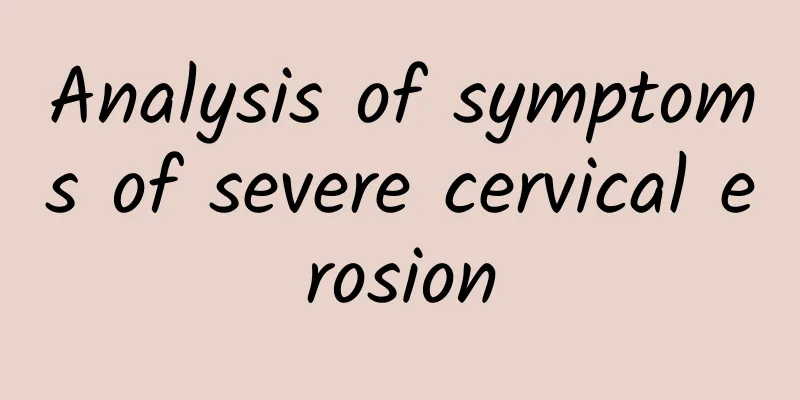What are the symptoms of cervicitis and what medicine is good

|
Treatment for cervicitis requires antibiotics, antiviral drugs or hormone drugs depending on the cause. Common symptoms include abnormal vaginal discharge, pain during intercourse and lower abdominal discomfort. Cervicitis is mainly caused by infection, mechanical stimulation or chemical substances, and requires prompt medical diagnosis and symptomatic treatment. 1. Common symptoms of cervicitis include increased vaginal discharge, which may be accompanied by an odor or abnormal color, pain or discomfort during sexual intercourse, pain in the lower abdomen or waist, and some patients may experience urinary system symptoms such as frequent urination and urgency. The severity of the symptoms varies depending on individual differences and the cause of the disease. 2. The causes of cervicitis mainly include bacterial infections such as gonococci, chlamydia, viral infections such as human papillomavirus, fungal infections such as candida, etc. Mechanical stimulation such as intrauterine contraceptive devices, cervical surgery or chemicals such as vaginal washing fluids may also cause cervicitis. Long-term chronic inflammation may increase the risk of cervical cancer. 3. In terms of drug treatment, bacterial cervicitis is usually treated with antibiotics such as azithromycin, doxycycline or cephalosporins; viral cervicitis can be treated with antiviral drugs such as acyclovir or interferon; fungal cervicitis can be treated with antifungal drugs such as fluconazole or clotrimazole. For patients with severe symptoms or chronic cervicitis, doctors may recommend the use of hormone drugs such as dexamethasone to relieve inflammation. 4. In daily care, keep the vulva clean and dry, avoid using irritating lotions, choose cotton underwear and change it frequently. Add foods rich in vitamins C and E, such as citrus fruits and nuts, to your diet to help enhance immunity. Avoid overwork and mood swings, and do some light exercise such as yoga or walking to promote blood circulation. The treatment of cervicitis must be carried out under the guidance of a doctor. See a doctor in time for diagnosis and take medication as prescribed by the doctor. At the same time, pay attention to daily care and dietary conditioning, which will help relieve symptoms and prevent recurrence. |
<<: What is the cause of lymphadenitis in the child's abdomen?
>>: How to determine whether it is endometriosis and what causes it
Recommend
What causes recurrent pelvic peritonitis?
Chronic pelvic peritonitis is usually caused by i...
What surgery is performed for uterine wall fibroids? Can uterine wall fibroids be removed?
What surgery is performed for uterine wall fibroi...
What to do about irregular menstruation? These 5 dietary recipes can easily regulate irregular menstruation
Irregular menstruation is one of the common gynec...
What are the symptoms of chronic vaginitis?
What are the symptoms of chronic vaginitis? When ...
Patients should pay more attention to the symptoms of cervical erosion
In recent years, the incidence of cervical erosio...
Seize the ovulation period to lose weight! Drink Ligustrum lucidum fat-reducing drink
Not only do women’s emotions tend to fluctuate du...
Smart slim upper body! 6 moves to sculpt your body in bed
You know that if you want to lose weight successf...
Three major hazards of female pelvic inflammatory disease
Pelvic inflammatory disease is divided into acute...
Unhygienic sex life can lead to bacterial vaginosis
With the development of medicine, vaginitis has b...
Experts introduce five precautions for treating cervical hypertrophy
Cervical hypertrophy is very harmful to women, an...
What happens if I haven’t had my period for three months?
What happens if I haven’t had my period for three...
Medicinal Diet for Women with Amenorrhea - Boiled Eggs with Chuanxiong
[ Introduction] Amenorrhea is a common symptom of...
Five points to determine whether you have uterine fibroids symptoms
What are the symptoms of uterine fibroids? In cli...
Vitamin C deficiency, beware of these three symptoms! Excessive intake of vitamin C also has three major hazards
When it comes to essential vitamins for the human...
Can dysmenorrhea be eradicated?
Can dysmenorrhea be eradicated? Dysmenorrhea is a...









